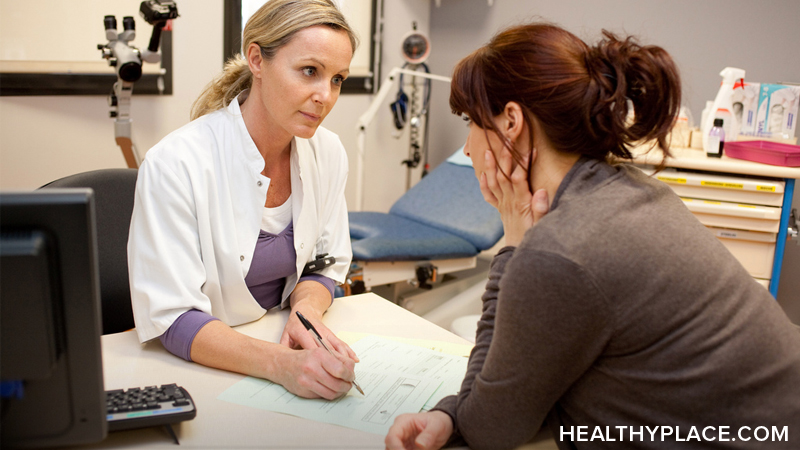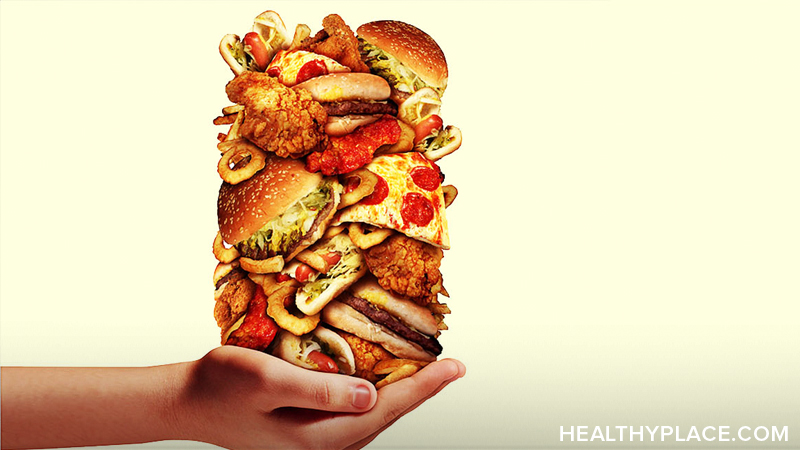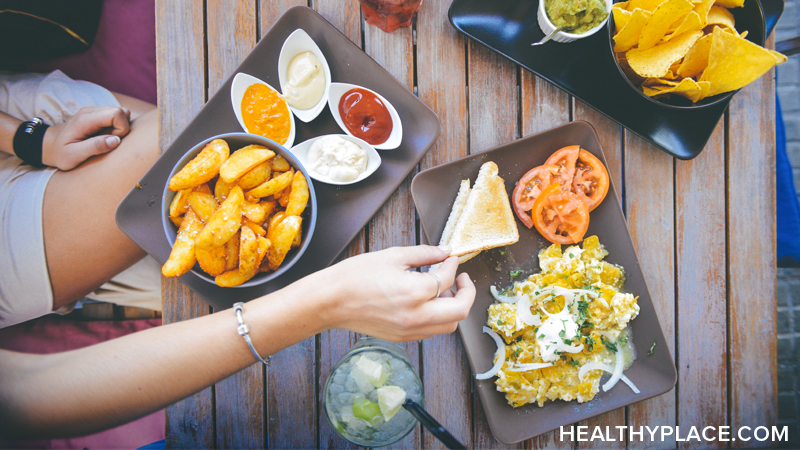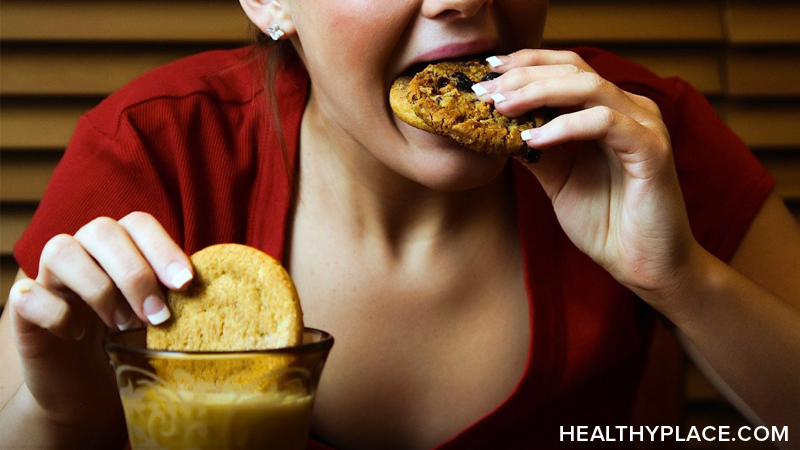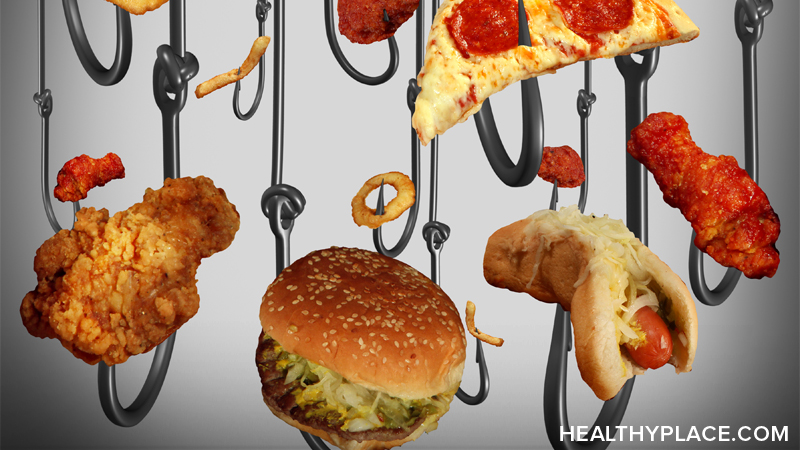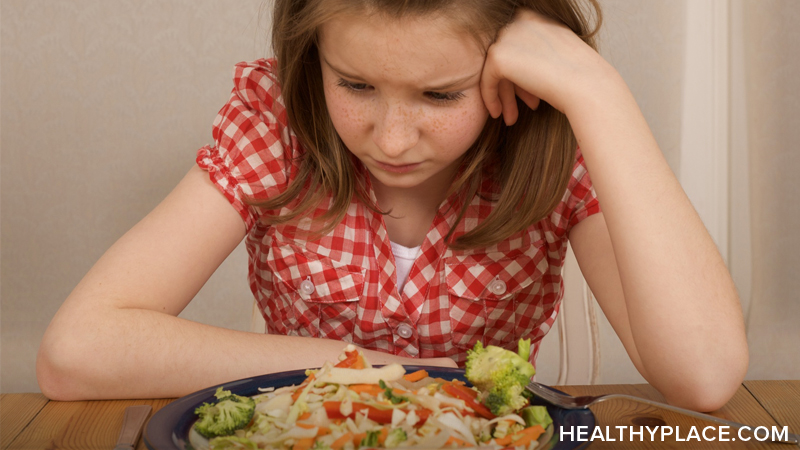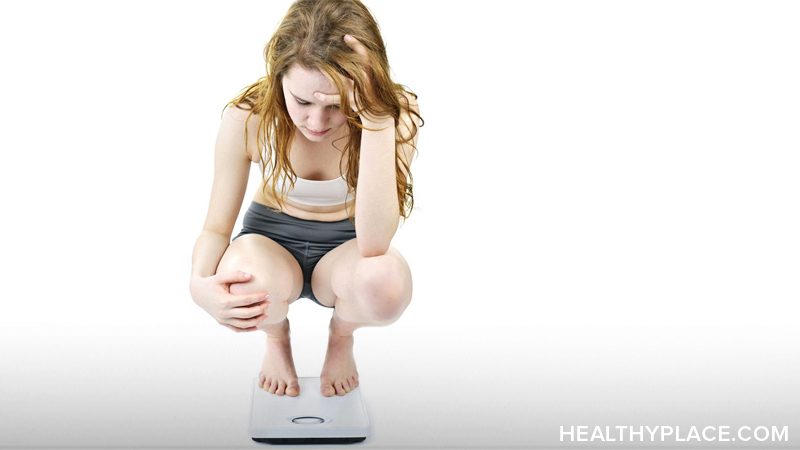
What is bulimia? It is a potentially life-threatening mental illness that is as much about body image as it is about food.
Bulimia Nervosa (typically just referred to as bulimia) is an illness that is difficult to detect as it can be brought on by normal behaviors and can initially have no external signs and symptoms. Often, it's only once the bulimic is sick that family members find out about bulimia, ask what is bulimia, read more about the bulimia definition, and in retrospect, see the bulimia warning signs.
When the family looks at a bulimic, they often see a moody, teenage girl obsessed with her body and her appearance. She seems like many other teenagers - obsessed with looking like the latest pop sensation. She is often average to above average weight, so the families don't mind her dieting behavior. When she gets upset and complains that diets don't work, her family might even try to help her maintain strict eating habits as they feel they are helping her.
But the family doesn't know that what they're seeing is part of bulimia. The bulimic is working very hard to hide her binge eating and purging behavior. Inside, the bulimic's stomach is cramping, and only appears bloated due to excess water weight caused by bulimia. She is hiding severe tooth decay, gum problems and cavities. It hurts for her to swallow because her esophagus has been damaged from all the purging. Her heartbeat is no longer regular and may actually fail resulting in death. (read Effects of Bulimia)
Once the family finds out the bulimic has been binging and purging, they are often disgusted with what she has been doing. They see the problem as merely behavioral and think she could stop if she wanted. But the bulimia definition is that of a mental illness, not a behavior, and just like any other illness it requires recognition and professional treatment for bulimia.
Information On Bulimia Causes
Bulimia is a complex disease and information suggests there is not a single cause of bulimia. Both environmental and genetic risk factors have been found to increase the risk of developing bulimia. Andrea D. Vazzana, PhD, Clinical Assistant Professor of Child and Adolescent Psychiatry at New York University explains:
"Personality traits, such as perfectionism and impulsivity, and a history of physical or sexual trauma have also been identified as risk factors for developing these disorders. Ballerinas, models, jockeys, and others whose jobs require them to stay in peak physical form are at particular risk of developing eating disorders. Having a family member with an eating disorder also increases a person's risk of developing an eating disorder.3"
(Get detailed information on the causes of bulimia)
Bulimia is more common than anorexia and has been on the rise for about 30 - 40 years.
"As the pressure to be thin has become more pervasive, eating disorders are occurring at earlier ages and among a more diverse ethnic population," says Dr. Vazzana. "Despite these trends, the people who are most at risk for developing eating disorders continues to be white females in their late adolescence and early adulthood."
While being overweight and dieting doesn't directly cause bulimia, these two factors tend to be the first steps in developing bulimia nervosa. (See dangers of dieting.)
Information on Bulimia Treatment
While hospitalization may be necessary for bulimics who are in danger of having a heart attack or other serious medical problems, most cases of bulimia are treated outside the hospital (read: Bulimia Treatment Centers). But even as families learn bulimia information, it can be very difficult for them to help during the treatment of an eating disorder. Dr. Deanne Pearson, whose doctoral dissertation focused on athletes with eating disorders, explains:
"...it is important that parents understand this "monster" [eating disorder] ...takes over the personality, and realize that anything they say to their daughters "will be taken and used against them." This element of the eating disorder frequently confuses parents... As parents try to say helpful things, they find that their words are rejected over and over again. But... they should realize that the "monster" control element ...is rejecting them, while their daughter, trapped in a prison of self-destruction, loves and needs them very much.1"
It's important to remember what bulimia is: bulimia is a disease, and bulimics should be presented with information on bulimia and not be punished for it. Judith Asner, MSW, with over 20 years of experience treating bulimics, explains:
"Punishment doesn't help anything ...you can appeal to their intellect ...you can present them with literature on the facts of eating disorders and talk to them about your concerns and try to encourage them to seek help, but punishment doesn't help."2
(Get comprehensive information on bulimia treatment)
Information On Bulimia Recovery
Recovery from bulimia is possible but is hard work and relapse is a real possibility. Bulimics need information on bulimia and supportive people around them to keep them on track, explains Asner.
"...the more accepting you [the bulimic] are of yourself, the more you can be honest about who you are with others, and you can ask them to help you in any way you need to be helped. The support of people who are there for you is essential.4"
The road to bulimia recovery can include therapists, nutritionists, doctors, support groups, family and friends, but it's important not to give up, "It is never too late to get well ...I see many women who do recover after 15 or even 25 years," says Asner.
Bulimia Repercussions
Physically, the most severe repercussion of bulimia is death, which is relatively uncommon in bulimics and is typically due to suicide and depression. Bulimics can hide the physical impact, often for years, but eventually bulimia can negatively affect the brain, lungs, heart, stomach, musculature, and kidneys. (read: dangers of bulimia.)
People with bulimia are typically preoccupied with their body, body image and diet and as bulimia further develops these preoccupations become obsessions. Little conversation or even thought revolves around anything other than weight and eating habits. Bulimics feel the need not only to control their food intake but also almost every other aspect of their lives.
Bulimia and the Media
Bulimia is often fueled by dissatisfaction with one's appearance and this can stem from the images seen throughout Western culture. An obsession with thinness leads to dieting, which often leads to eating disorders such as bulimia. Susie Orbach, PhD, and body image expert remarks:
"...our visual culture is something new that is having an impact on women. Each week, we see thousands of images in the media, in advertising, and in entertainment, of digitally transformed and "beautified" bodies. These images enter our minds and reshape our own relationships to the body and our ideas of what beauty is. The focus on thinness... we are told that not having a specific body shape is bad.5"
Dr. Orbach also cautions that as more visual media are focused on men, they too are becoming obsessed with body image. This can lead to behaviors associated with the bulimia definition, including overexercising and exaggerated participation in sports.
article references

